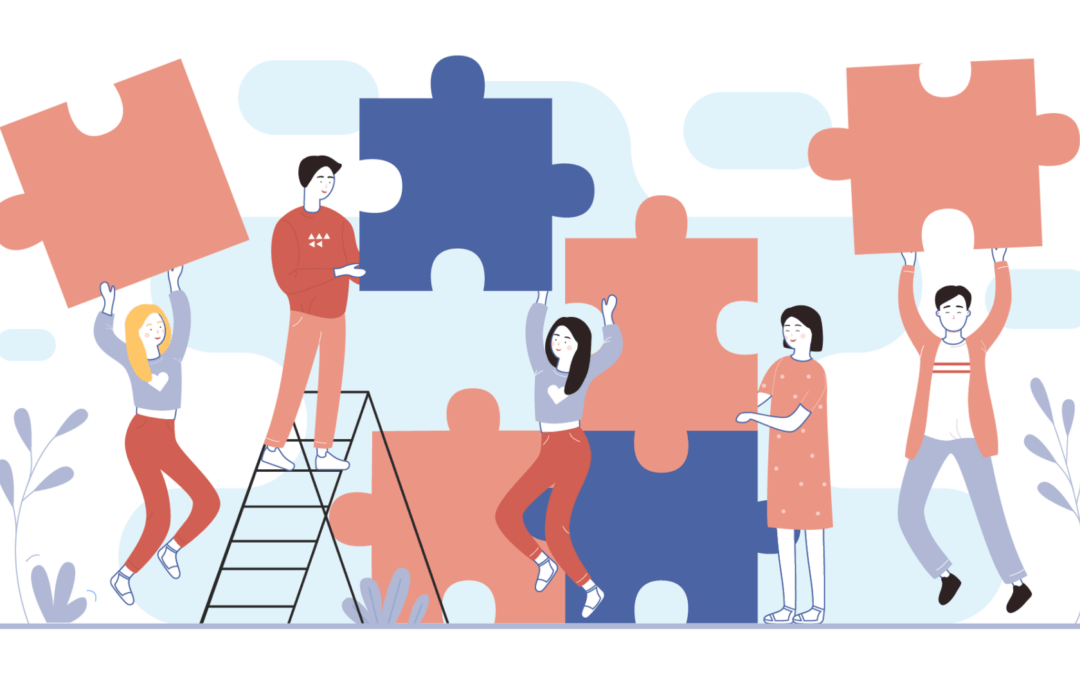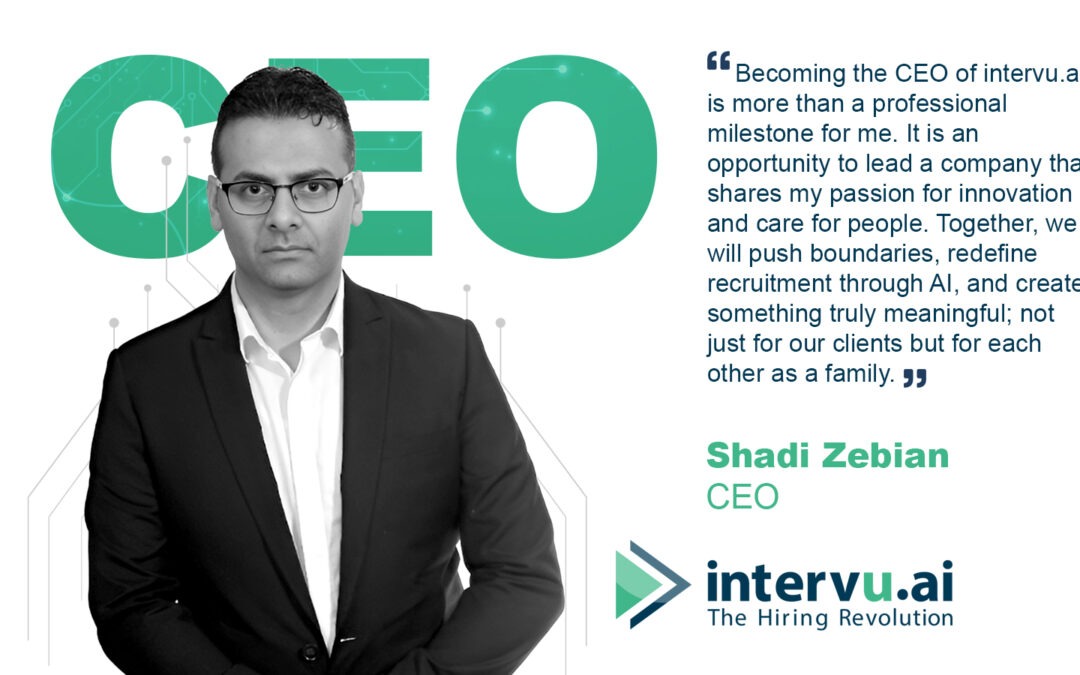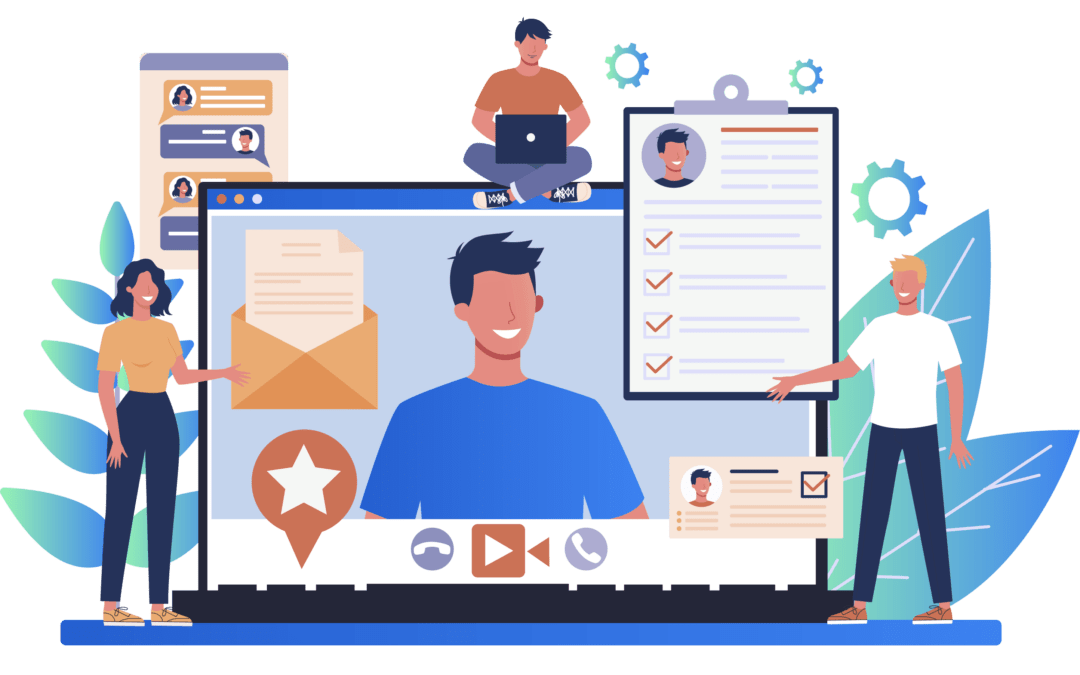
Fair Hiring in a Global Workforce: How AI Recognizes Talent Without Cultural Bias
Hiring the right talent is a top priority for businesses, but traditional hiring methods often contain cultural biases that disadvantage certain candidates. Many companies operate across different regions, but hiring managers (whether intentionally or unintentionally) may favor communication styles, body language, or speech patterns that align with their own cultural norms. This can lead to qualified candidates being overlooked simply because they do not conform to expected behaviors.
AI-powered hiring is changing this dynamic by shifting the focus away from subjective cultural habits and toward skills, competencies, and job performance. Since AI evaluates candidates using structured and standardized criteria, it helps businesses eliminate unconscious bias, increase fairness, and improve workforce diversity.
This article explores the role of cultural traits in hiring decisions, the biases that exist in traditional recruitment, and how AI-powered hiring tools can ensure a more equitable and inclusive hiring process.
1. What Are Culture-Related Traits, and How Do They Affect Hiring?
Cultural norms influence how people communicate, express themselves, and engage with others in professional settings. In recruitment, these traits can lead to unconscious bias, where hiring managers assess candidates based on familiarity with communication styles rather than actual qualifications.
a. Non-Verbal Communication and Body Language
- Eye Contact: In Western cultures, direct eye contact is often associated with confidence and honesty, while in some Asian and Middle Eastern cultures, avoiding eye contact is a sign of respect. A hiring manager unfamiliar with these differences might misinterpret a candidate’s body language as disinterest or lack of confidence.
- Hand Gestures: Gestures that are neutral or positive in one culture may be offensive in another. For example, a thumbs-up sign is considered positive in many countries but can be seen as rude in some parts of the Middle East.
- Facial Expressions: Some cultures encourage expressiveness and enthusiasm, while others value composure and restraint in professional settings. A candidate who remains neutral and serious might be perceived as disengaged when they are simply adhering to their cultural norms.
b. Verbal Communication Styles
- Speech Pauses and Redundancies: Some cultures emphasize thoughtful pauses before answering, while others value quick responses. A candidate who takes a moment to reflect before answering might be perceived as hesitant, when in reality, they are simply processing the question carefully.
- Direct vs. Indirect Communication:
- In cultures that value directness, a candidate might say, “I am the best person for this job.”
- In cultures that prioritize indirect communication, the same sentiment might be expressed as, “I believe my skills would be beneficial to your company.”
- A hiring manager unfamiliar with these cultural differences might interpret indirect communication as a lack of confidence.
c. Cultural Views on Self-Promotion
- Confidence in Interviews: In Western cultures, self-promotion is often encouraged in job interviews. However, in collectivist cultures, humility is valued over individual achievements. A candidate from such a background may understate their contributions, leading a recruiter to perceive them as less qualified than they actually are.
- Formality and Respect for Authority: Some candidates may address interviewers using titles and formal speech, while others adopt a casual and friendly approach. Neither is wrong, but a hiring manager unfamiliar with these differences might unintentionally favor one style over another.
Understanding these culture-related traits is essential because they have no impact on a candidate’s ability to perform a job but can influence how they are perceived in the hiring process.
2. The Challenge of Cultural Bias in Traditional Hiring
Cultural biases in hiring occur when recruiters unconsciously favor candidates who communicate in familiar ways. This can lead to unfair hiring decisions that exclude highly skilled candidates simply because their communication style differs from what is expected.
a. How Human Bias Affects Hiring Decisions
- First Impressions: Studies show that hiring managers form opinions about candidates within the first few minutes of an interview, often based on personal comfort rather than job-relevant factors.
- Misinterpretation of Enthusiasm: A candidate from a reserved culture might be seen as lacking passion, while a candidate from an expressive culture might be perceived as overly assertive.
- Language and Accent Bias: Non-native speakers who pause or use indirect phrasing may be judged unfairly, even if their ideas are well-structured and insightful.
b. Real-World Examples of Cultural Bias in Hiring
- The “Leadership Potential” Bias: A multinational company found that hiring managers from Western countries consistently rated East Asian candidates lower on leadership skills. The reason? These candidates used indirect communication styles, which were incorrectly associated with a lack of confidence.
- The “Confidence Perception” Bias: A study found that candidates from cultures that value humility received fewer job offers, even though their skills and experience matched or exceeded other applicants.
These examples highlight why traditional hiring methods can unintentionally exclude top talent. AI-powered hiring addresses these challenges by evaluating candidates based on data, not subjective perceptions.
3. How AI Ensures Cultural Sensitivity in Hiring
AI-powered hiring tools help reduce cultural biases by focusing on competencies, performance, and qualifications rather than communication styles or body language.
a. AI Evaluates Candidates Based on Skills, Not Mannerisms
- AI scores candidates using standardized assessments, ensuring that verbal delivery, facial expressions, and gestures do not influence evaluation outcomes.
- AI-driven hiring focuses on job-related skills like problem-solving, technical expertise, and role-specific competencies rather than cultural habits that do not impact job performance.
b. Neutrality in Language and Speech Analysis
- AI is trained to recognize diverse communication styles, ensuring that speech patterns, pauses, and indirect phrasing are not misinterpreted as weaknesses.
- Unlike human recruiters, AI does not form instant impressions based on tone, phrasing, or mannerisms.
c. Standardized Evaluations Across Global Candidates
- AI applies the same objective evaluation criteria to all candidates, ensuring that no cultural background is unfairly favored.
- AI removes subjective factors like “charisma” or “rapport”, allowing companies to hire based on measurable qualifications.
4. The Role of AI in Eliminating Unconscious Bias
AI-powered hiring plays a transformative role in reducing unconscious cultural bias by shifting recruitment from subjective impressions to structured, data-driven evaluations. Unlike human recruiters, who may unknowingly favor candidates who share their cultural communication styles, AI evaluates applicants based solely on skills, competencies, and potential.
However, AI is not inherently free from bias, instead its fairness depends on how well it is trained and continuously refined. The effectiveness of AI in ensuring culturally unbiased hiring relies on four key factors that ensure AI remains a tool for inclusivity, rather than an extension of traditional hiring biases:
a. AI Uses Diverse Training Data to Recognize Cultural Differences
The foundation of AI fairness lies in how it is trained. AI models must be built using data from various cultures, regions, and communication styles to ensure they do not favor one demographic over another.
- Eliminating Bias in Speech and Language Processing
- AI-powered hiring tools analyze spoken responses, but different cultures have unique communication styles.
- Some candidates may use pauses before answering, while others speak in direct statements. AI must be trained to evaluate responses fairly regardless of style.
- Filler words like “um” and “uh” are common in many languages and should not be misinterpreted as a lack of confidence or qualification.
- Recognizing Cultural Differences in Non-Verbal Communication
- Some cultures emphasize strong eye contact in interviews, while others view indirect eye contact as a sign of respect. AI ensures candidates are not penalized for these differences.
- Hand gestures and facial expressions vary widely. AI models should account for these differences to prevent misinterpretation.
By training AI on diverse, multicultural data, companies ensure fair and unbiased hiring assessments, creating equal opportunities for all candidates.
b. How AI Improves Diversity Hiring
Traditional hiring processes often favor candidates who “feel familiar” to recruiters, even if other candidates are equally or more qualified. AI helps expand the talent pool by removing subjective barriers and ensuring equal opportunities for all applicants.
- Access to a Broader, More Diverse Talent Pool
- AI allows companies to assess candidates from different regions, backgrounds, and professional experiences.
- Many organizations struggle with diversity gaps due to hiring biases. AI prevents this by evaluating all applicants equally.
- Eliminating Subjective Hiring Criteria
- Traditional hiring decisions often weigh soft skills like confidence and charisma, which can favor candidates from certain cultural backgrounds.
- AI ensures hiring is based on role-specific qualifications, rather than personal familiarity with communication styles.
- Fair Hiring Outcomes for Underrepresented Groups
- Candidates from modest or non-dominant cultures may downplay their achievements, leading recruiters to underestimate their qualifications.
- AI corrects this by focusing on measurable skills and experience, ensuring that qualified individuals are not overlooked due to cultural norms.
5. Best Practices for HR Teams to Leverage AI for Fair Hiring
To maximize AI’s effectiveness in reducing cultural bias and ensuring fair, inclusive hiring, companies should:
– Choose AI Tools with Culturally Diverse Training Data
- Ensure AI systems are trained with varied speech patterns and global communication styles to prevent bias against any particular cultural group.
- Use datasets that include diverse facial expressions, body language, and linguistic nuances to create a balanced evaluation model.
- Partner with AI vendors who prioritize ethical AI development and transparency in their hiring algorithms.
– Use AI as a Supplement, Not a Replacement for Human Judgment
- AI provides objective hiring insights, but human recruiters should review results to ensure fairness.
- AI can screen for skills and experience, but final hiring decisions should involve human evaluation to account for contextual and emotional intelligence factors.
– Continuously Monitor AI for Bias
- AI should be regularly audited and tested to ensure that it remains neutral, fair, and inclusive across different cultural backgrounds.
- Implement bias-detection frameworks that flag disproportionate hiring patterns or exclusion of specific demographics.
- Update AI models with new hiring data to keep them aligned with evolving workplace diversity needs.
– Provide Candidates with Transparency on AI’s Role in Hiring
Many candidates may feel uncertain about how AI is used in recruitment. Providing clear information helps build trust in AI hiring by explaining:
- What AI evaluates and how it influences hiring decisions.
- How fairness is ensured through bias monitoring.
- How candidates can provide feedback if they feel AI impacted their application unfairly.
– Ensure AI Aligns with Inclusive Hiring Policies
- AI should complement broader diversity, equity, and inclusion (DEI) initiatives rather than function in isolation.
- HR teams must ensure AI-driven hiring tools:
- Do not unintentionally exclude certain cultural or demographic groups.
- Support company-wide DEI goals by identifying diverse talent pipelines.
- Are used to enhance representation and remove historical hiring biases.
Organizations should continuously educate hiring teams on how AI improves fairness in recruitment and how to integrate AI-driven insights with inclusive hiring strategies.
AI: a Gateway to Fair and Inclusive Global Hiring
AI-powered hiring eliminates cultural biases by focusing on skills rather than non-verbal behaviors or speech styles. By integrating AI into recruitment, businesses can expand their global talent pool, promote diversity, and create a truly inclusive workforce.
As companies continue to operate in a globalized economy, using AI ensures that hiring decisions are fair, unbiased, and based on merit. The future of hiring is not just about efficiency, it is about ensuring every qualified candidate has an equal opportunity to succeed.




